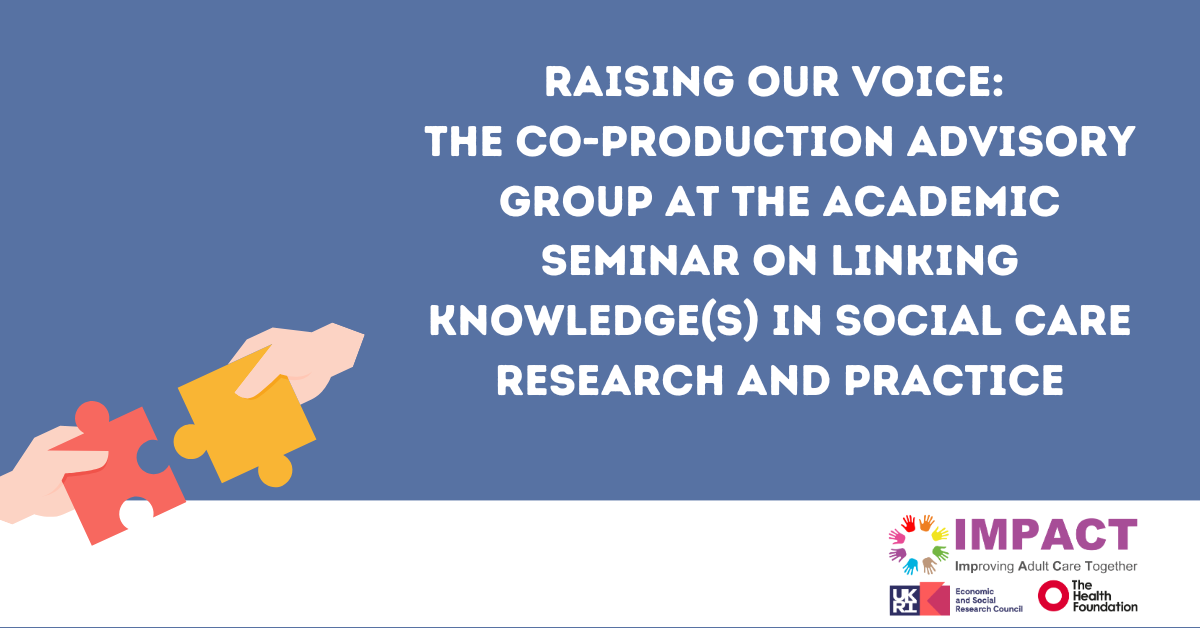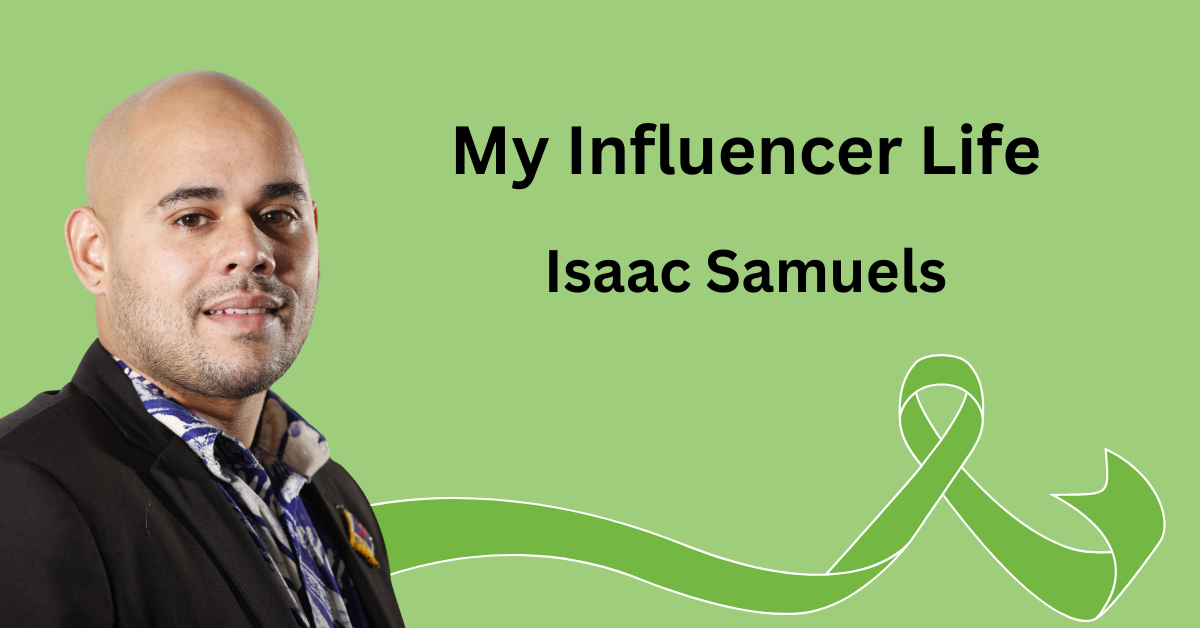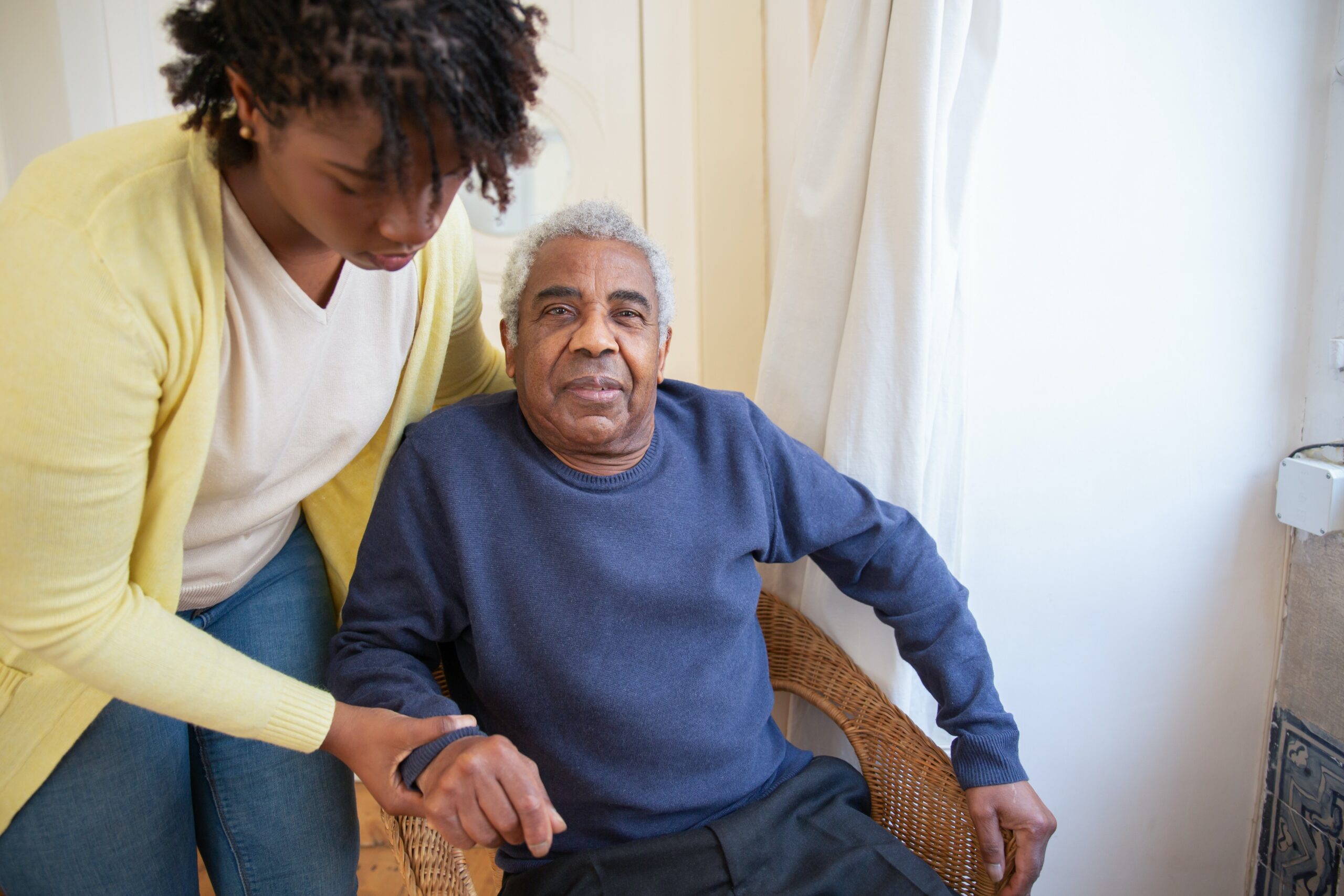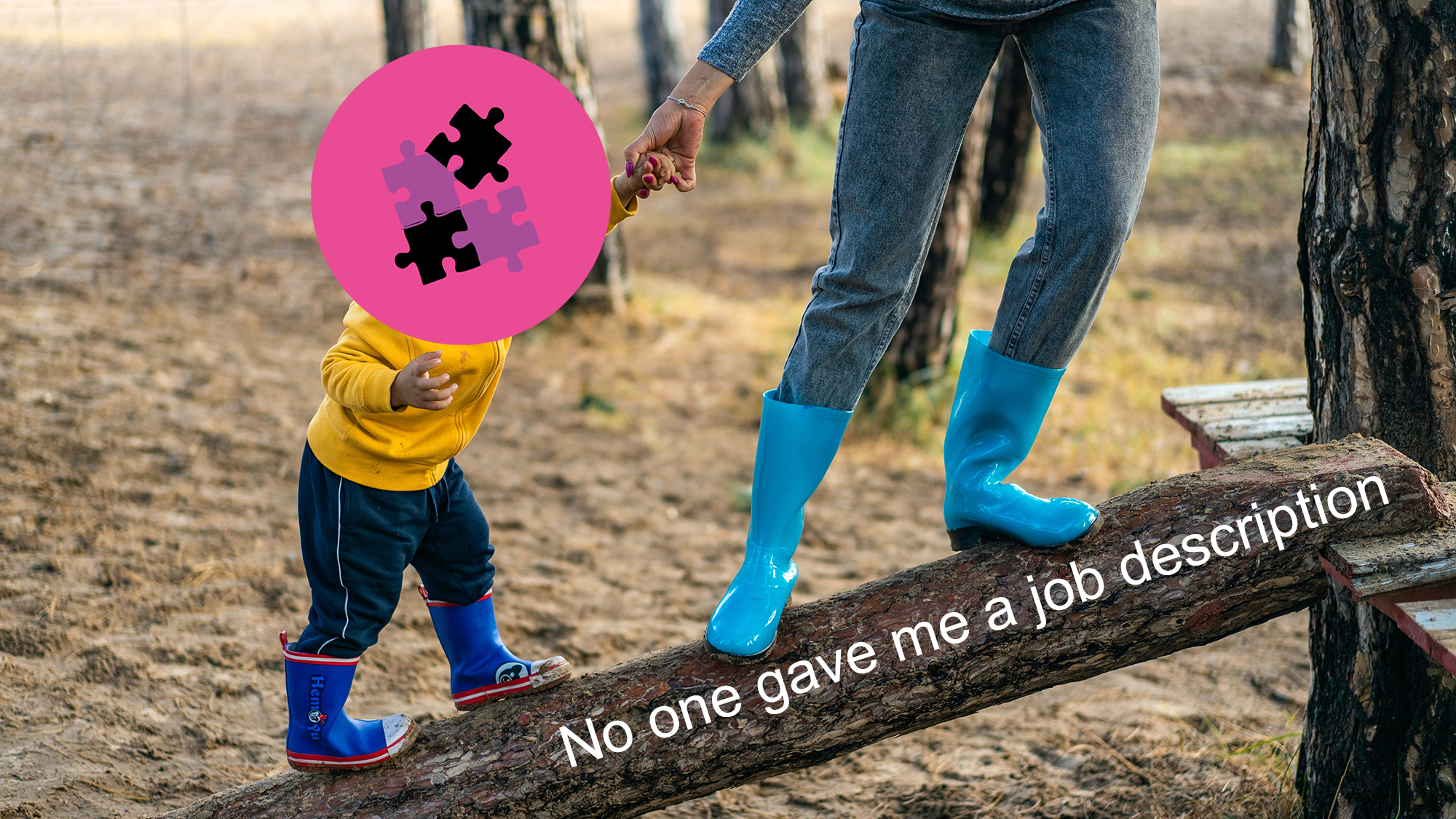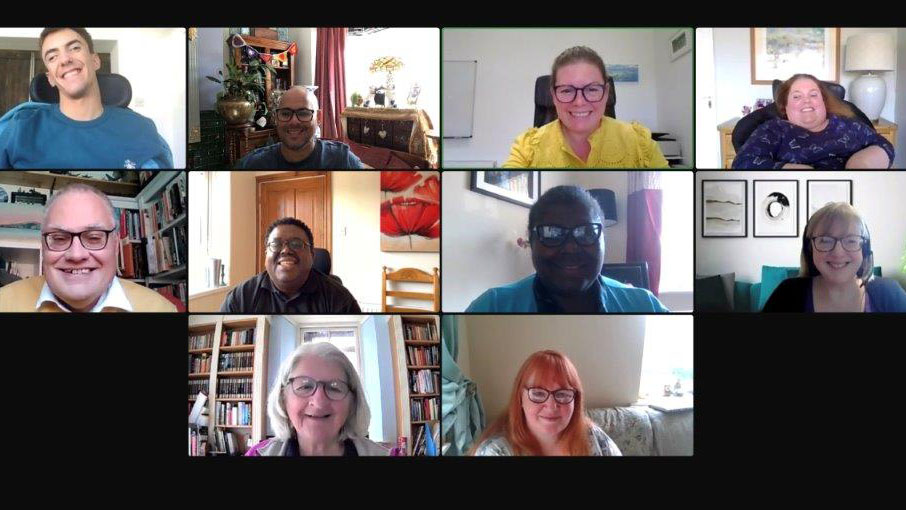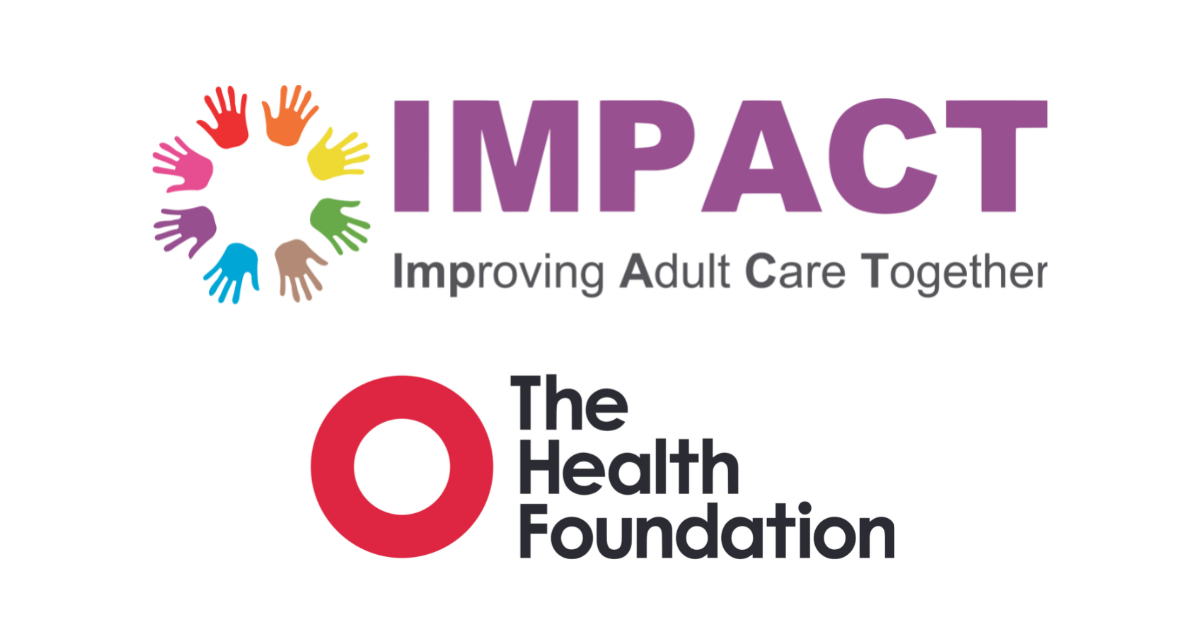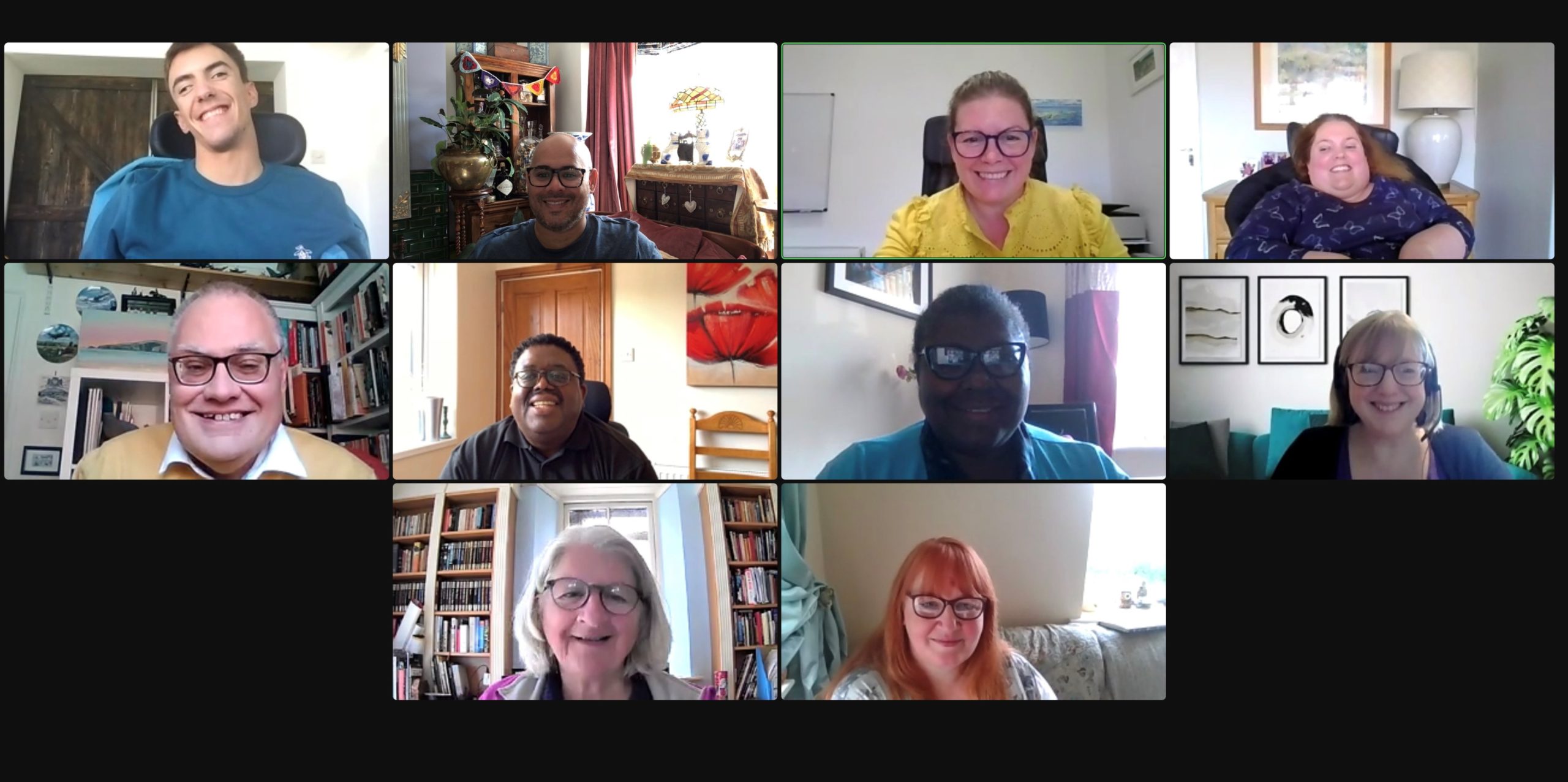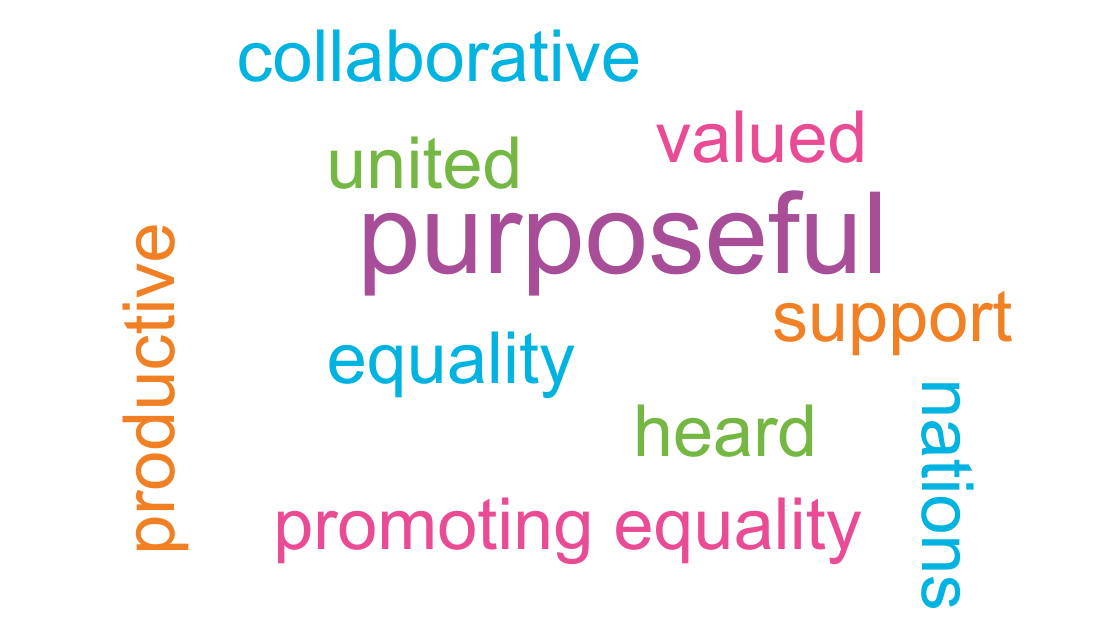As the complexity of problems and crisis management in adult social care continues, so too do the efforts of those working across all sectors to do their bit to effect change. Change does not happen quickly or magically. There is no wand. The crisis in health pushes adult social care further down the agenda. A growing and resilient social movement for change such as #SocialCareFuture across the UK is helping to bring it back to the forefront. So too is IMPACT, an implementation centre enabling practical improvements on the ground and making a crucial contribution to longer-term cultural change. Karen, our Lived Experience Engagement Lead, shares how IMPACT’s co-production work was shaped in 2022 and the upcoming plans for co-producing in 2023.
Our co-production approach
IMPACT projects, or sites as they are known, take a co-production approach. They span many areas of adult social care, such as direct payments, decision aids in end-of-life dementia care, and technology-enabling care. Expressions of interest are now open for organisations wishing to work on change projects in partnership with IMPACT in 2023-2024.
IMPACT’s co-production advisory group ensures the voice of those with lived experience is equally represented across IMPACT’s work. As will be reflected in our first annual report when it is published.

Learning from 2022 and co-producing into 2023
Looking back, co-producing our own work plan in 2022 was challenging and sometimes frustrating, but hugely rewarding. Relationships, time, and space were key themes. Time was well spent laying the foundations of our working relationships. We also acknowledged that co-production requires more space than we often afford – or can afford it. That will be a key lesson facing our work for 2023 – more space. A safe space to keep building trust, airing opinions freely, and listening to the voices of experience. We want to improve how we communicate this experience across IMPACT teams and beyond, by engaging further with like-minded groups.
In 2023, we begin to learn about the evidence emerging from existing sites and how IMPACT is practically working. We will continue with our flexible and responsive approach to our work. Our approach will continue to adapt based on what we hear. We also aim for many of our contributions to continue being implemented across IMPACT. We will draw on the strengths of our group members to inform, guide, and ensure that those who have lived experience of drawing on social care support are central to our work.
As we scale our projects, we want to ensure that co-production remains a core approach throughout all of IMPACT’s work. We want to ensure that this is consistent and transparent. Thankfully, the IMPACT team is traveling in that same direction and is listening with open ears. And listening to hear – prepared to act upon the feedback, and committed to effecting change. Each positive change in social care, however small it may seem, can lead to another, and another. Perhaps not from a magic wand, but from these tiny ripples come great waves.

